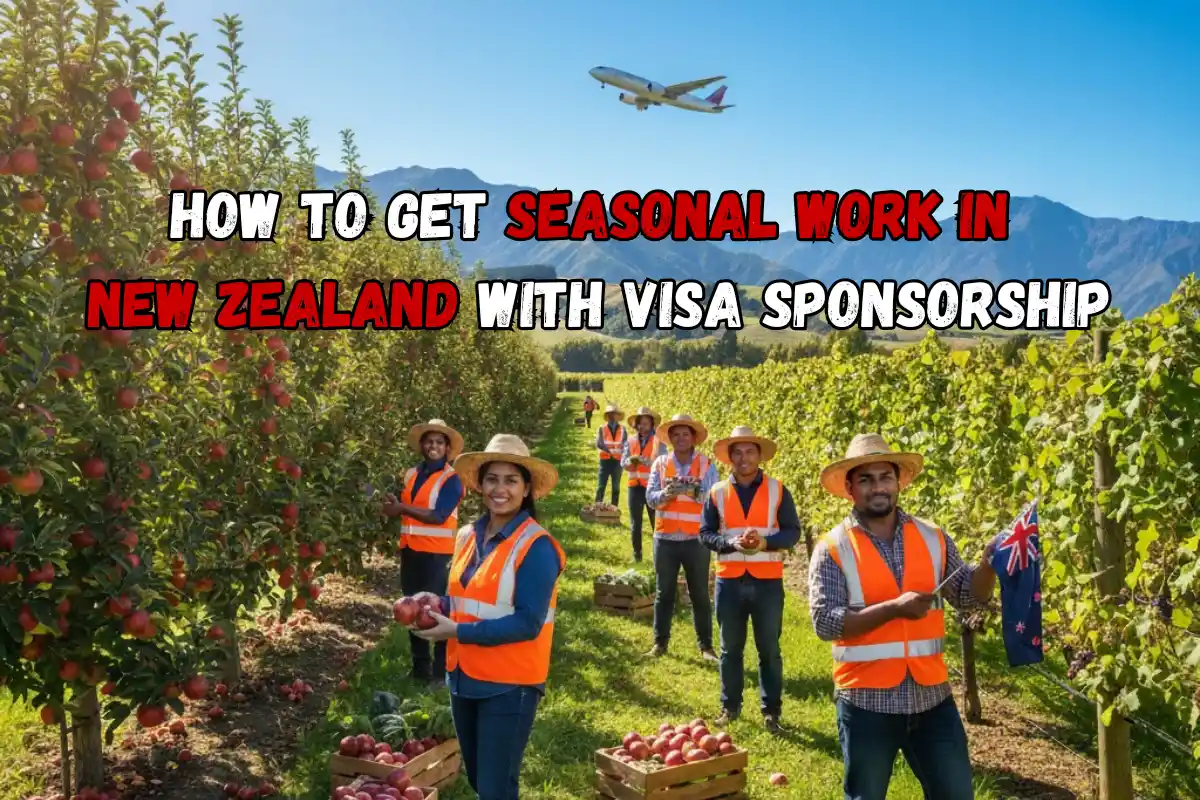
If you want Seasonal work in New Zealand, this simple guide will take you through everything step by step. I’ll explain what the work is like, how visa sponsorship usually works, what employers must do, how you fill the Application Form, and practical things like the NZeTA Cost and visitor levies. Read on — I’ll keep it plain and helpful so you finish with no doubts.
When people say Seasonal work in New Zealand, they usually mean short-term jobs on farms, orchards, or vineyards during busy harvest or pruning seasons. These jobs include picking fruit, packing, pruning vines, and other outdoor tasks. Seasonal work in New Zealand is often physically warm, tiring, and fast-paced, but it also pays, teaches practical skills, and gives you time to travel around this beautiful country. The most common program that brings people in for this kind of work is the Recognised Seasonal Employer (RSE) scheme.
There are two main routes to get seasonal jobs:
If an employer sponsors you under the RSE scheme, they handle much of the paperwork and promise to meet rules about pay, housing, and worker welfare. That is why many choose RSE jobs for Seasonal work in New Zealand — it’s often clearer and safer than going through unknown recruiters.
To work through the RSE scheme you normally must:
Most RSE work allows you to stay for up to seven months in any 11-month period (some Pacific nations have slightly longer limits). That means seasonal work in New Zealand is usually a fixed-term plan rather than a long-term move. Always check the exact visa conditions for your situation.
Employers who want to hire from overseas must be accredited and, where needed, have an Agreement to Recruit (ATR). This paperwork proves to Immigration New Zealand that the employer can provide safe housing, fair pay, and necessary support for workers. So, before you accept an offer, confirm the employer is accredited — that helps keep seasonal work in New Zealand honest and safer for you.
If you need to request a travel authority, know the NZeTA Cost before you start. An NZeTA request costs NZD $17 when you use the official app, or NZD $23 if you apply online, and you should allow up to 72 hours for processing. Also, New Zealand charges an International Visitor Conservation and Tourism Levy (IVL); that amount was increased to NZD $100 on 1 October 2024. These sums can add to your travel cost, so plan ahead and always pay on official government sites to avoid scams.
Expect early starts, physical work, and often a focus on speed during harvest. Training is usually on the job, and employers may pay hourly or piece-rate depending on the role. Good RSE employers provide decent accommodation and take on the duty of worker welfare — that’s part of what sponsorship means. If anything feels unsafe or unfair, you can raise concerns with the proper authorities. Seasonal work in New Zealand should be a fair and safe experience.
Seasonal work in New Zealand gives you a clear time to earn, learn skills, and see a lovely country. If you pick an accredited employer, complete the Application Form carefully, and plan for costs like NZeTA and the IVL, seasonal work in New Zealand can be safe and rewarding. Take your time to check facts on official government pages and ask questions — most employers who sponsor workers want a good reputation and will help you start well.